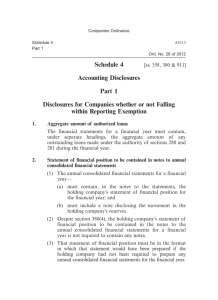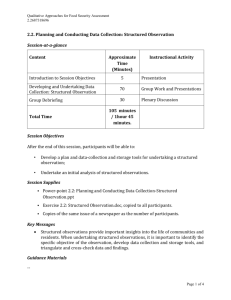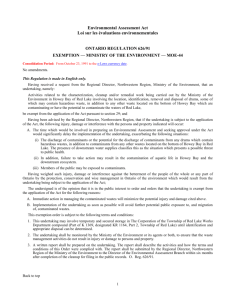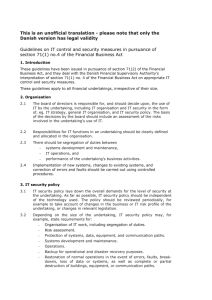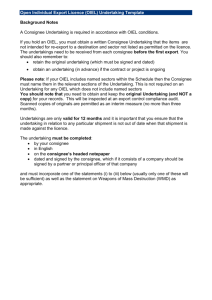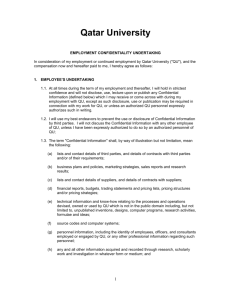Business Law Lesson 3
advertisement
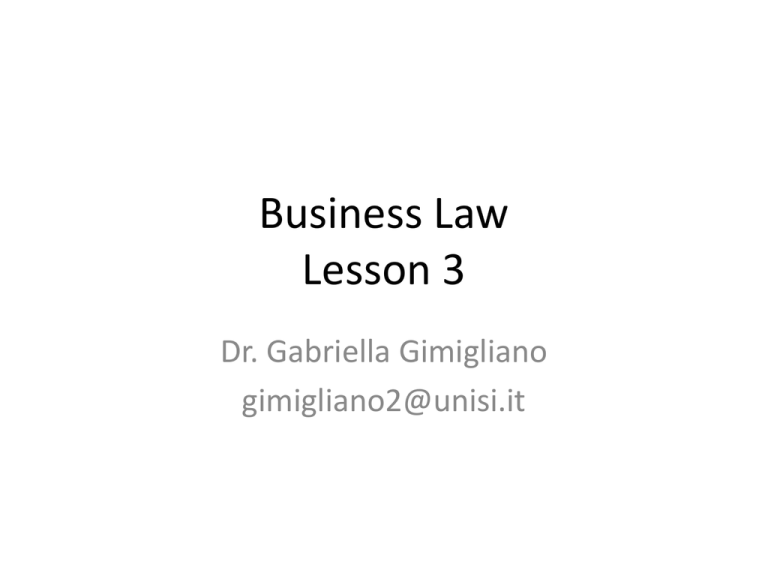
Business Law Lesson 3 Dr. Gabriella Gimigliano gimigliano2@unisi.it Undertaking/Company Undertaking = The concept of undertaking covers every entity engaged in an economic activity, regardless of the legal status of the entity and the way in which it is financed. Company = means companies or firms formed under civil or commercial law, including cooperative societaties, or other legal persons governed by public or private law, save for those which are non-profit making. (art. 54.2 TFEU) Undertaking/Company What is the relationship between the concept of undertaking and the concept of company? The company is one the organizations suitable to providing an undertaking. However, the undertaking may be formed also by several legal persons/companies which are acting as a single economic unit, by legal and natural persons, by natural persons. Undertaking/Company (Art.49.1 TFEU) Within the framework of the provisions set out below, restrictions on the freedom of establishment of nationals of a Member State in the territory of another Member State shall be prohibited. Such prohibition shall also apply to restrictions on the setting-up of agencies, branches or subsidiaries by nationals of any Member State established in the territory of any Member State. Undertaking/Company (Art. 49.2 TFUE) Freedom of establishment shall include the right to take up and pursue activities as self-employed persons and to set up and manage undertakings, in particular companies or firms within the meaning of the second paragraph of art.icle 54, under the conditions laid down for its own nationals by the law of the country where such establishment is effected, subject to the provision of the Chapter relating to capital. Undertaking/Company (Art. 55 TFEU) Member States shall accord nationals of the other Member States the same treatment as their own nationals as regards participation in the capital of companies or firms within the meaning of article 54, without prejudice to the application of the other provisions of the Treaties. Undertaking/Company (art. 50.1 TFEU) In order to attain the freedom of establishment as regards a particular activity, the European Parliament and the Council acting in accordance with the ordinary legislative procedure and after consulting the Economic and Social Committee, shall act by means of directives. Undertaking/Company Why did we employ the definition of «undertaking» in competition jurisprudence to figure out the main principles of company law? Because also the EU company law has a procompetitive objective. The creation of an internal market, removing any obstacles to the free movements of goods, persons, services and capital, was one of the means of spurring the economic development and growth. Harmonisation and Delaware Effect «The main reason for this (harmonisation of company law) was to provide equal protection to shareholders and third parties, including creditor. The motive not mentioned (…) was to prevent competition between legal systems». Delaware Effect = it means the risk that every Member State would aim to provide the most favorable legislation to lead companies to establish their registered office in its own territory. France vs Netherlands!
